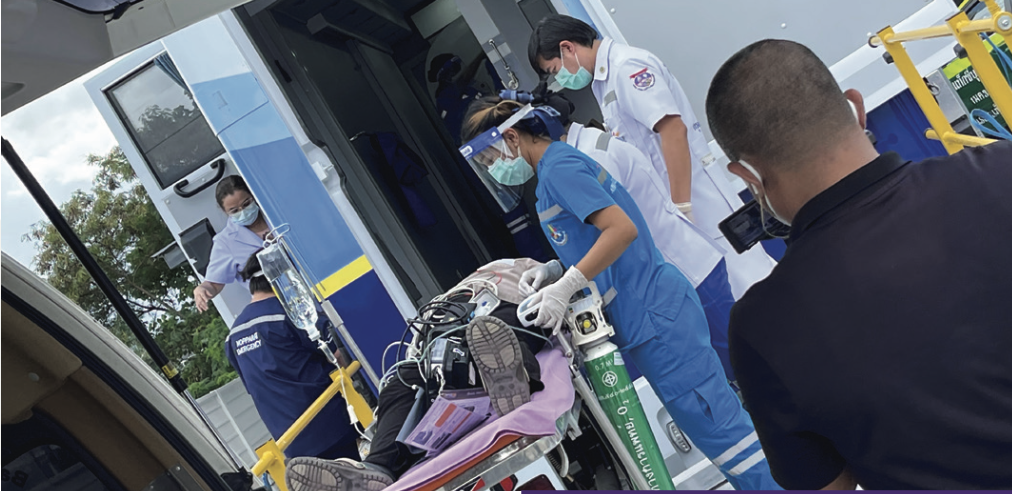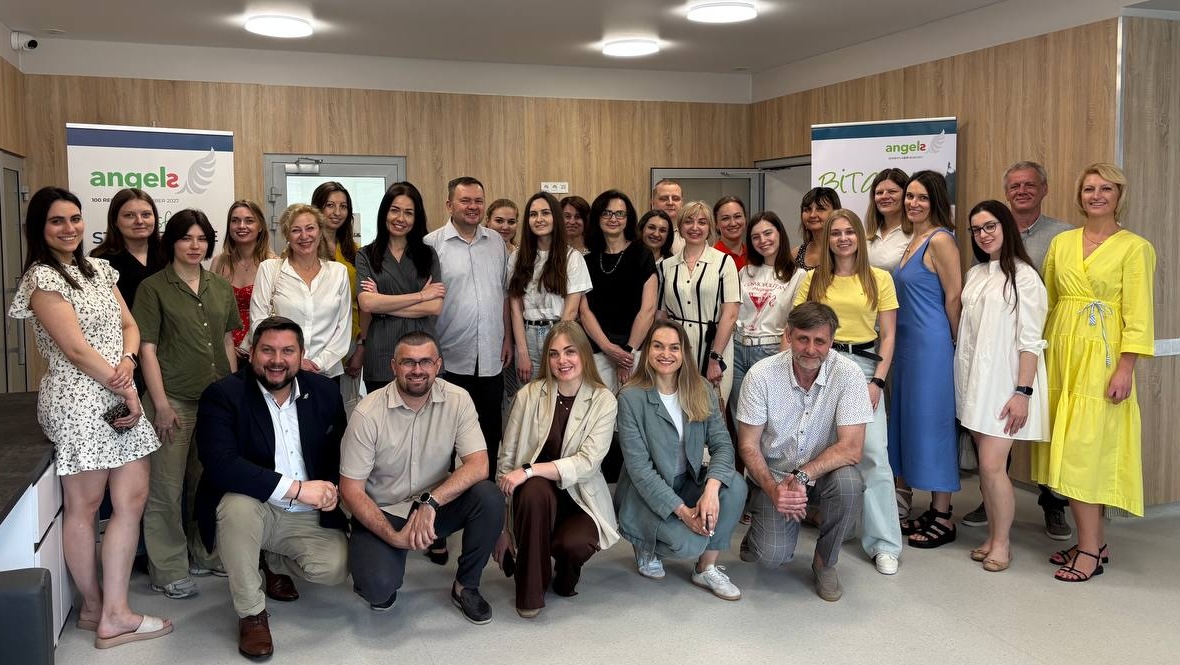A mobil stroke-egységek thaiföldi telepítése életeket menthet és csökkentheti a stroke-túlélők fogyatékosság. Az Angels thaiföldi csapatának szimuláció gyakorlata próbára teszi.

Az idő a legfontosabb az akut ischaemiás stroke-ban szenvedő betegek kezelés. Minél hamarabb kap kezelés a betegek, annál valószínűbb, hogy túlélik az eseményt, és minimális fogyatékosság térnek vissza az életükbe. Az időkezelés azt jelenti, hogy gyorsabban mentünk életeket, de a forgalom és a terep jelentős akadályokat jelent az utazási idő, valamint a tünetek jelentkezése és a kezelés közötti időintervallum csökkentésében.
A mobil stroke egységek új megközelítést jelentenek a gyorsabb beteg eléréséhez. Jelentősen csökkenthetik azt az időt, amely alatt a stroke-os betegek hozzáférhetnek a kezelés; gyorsabban elérhetik a betegeket, és a diagnózis és a kezelés azonnal kezelhető a kórházba vezető úton, növelve a túlélés és az életminőség valószínűségét.
A mobil stroke egységek már öt zónában működnek Thaiföldön, hogy támogassák a stroke-os betegek kezelés a közösségben. 2021-ben egy olyan vizsgálat tárgyává váltak, amelynek célja a kezelés idő csökkentésére való képességük felmérése és javítása volt. Az Angels thaiföldi csapata két virtuális stroke osztály szimulációt indított – az ország első számúját – a thaiföldi Neurológiai Intézetben, amely egy neurológia bangkoki neurológiai szakosodott kórház, és a Nopparat Rajathanee Kórházban, amely Thaiföld számos egészségügyi iskolájához kapcsolódó fő oktatókórház.
A thaiföldi Neurológiai Intézet szimuláció gyakorlata körülbelül 30 résztvevőt vont be, köztük sürgősségi orvosokat, neurológusokat, stroke és radiológusokat. Egy megbeszéléssel kezdődött, hogy megértsék a mobil stroke osztály vonatkozó folyamatot, majd az Angels-csapat megosztotta javaslataikat a munkafolyamat módosítására, hogy kényelmesebbé és gyorsabbá tegyék azt. A rendszert ezután egy videón rögzített virtuális eseményen tesztelték.
A szimuláció akkor kezdődött, amikor egy „beteg” felhívta a kórház 1669-es forródrótját, hogy jelentse a stroke-ra utaló tüneteket. Orvost orvos, ápoló és radiológust szállító mobil stroke osztály szállítottak a helyszínre, ahol a beteg stroke-ra értékelték. CT-vizsgálat végeztek az egység fedélzetén, és a képeket egy olyan rendszeren keresztül továbbították, amely összekapcsolta a járművet és a kórházat.
A telemedicina hálózaton keresztül csatlakozó neurológus való távoli konzultációt követően a beteg trombolízissel történő ellátásáról döntöttek. A mobilkészülék fedélzetén lévő orvos azonnal beadta a bolust, ami azt eredményezte, hogy a beteg rt-PA-t kapott a stroke osztály megérkezését követő 20 percen belül. Az egység ezután visszatért a kórházba, ahol egy szakértői csapat áll készen a beteg fogadására, akit felvették a stroke osztály.
A szimuláció azt mutatta, hogy a mobil stroke-egységek 30–60 percre csökkenthetik a kezelés időt, összehasonlítva a 120 perces átlagos beérkezéstől a kezelés megkezdéséig eltelt időt a kórházba segítség nélkül utazó betegeknél. A mobil stroke egységek jó alternatív útvonalat kínálnak az akut stroke-ban szenvedő betegek számára, és a szimuláció származó beállítási és fejlesztési lehetőségek arra utalnak, hogy még erősebb eszközzé válhatnak a stroke-kal kapcsolatos halálozás és fogyatékosság elleni küzdelemben.



